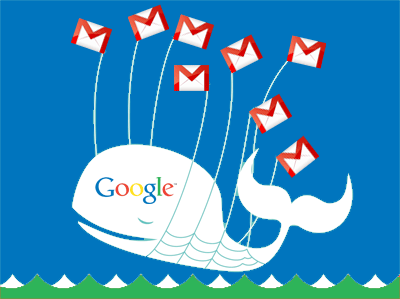
Google’s Own Fail Whale
It would have gone unnoticed to most businesses but last Friday Google and most of its services went down. Websites go down all the time and Twitter even became famous for it’s Fail Whale as the service went down so often in the early days.
Google is different though, with its infrastructure and resources you wouldn’t expect it to have a total outage, and sure enough many who monitor these things were left scratching their heads.
Putting it into perspective, the outage lasted for between 1 to 5 minutes according to Google’s own reporting of the incident , although they are still yet to explain the cause. Even with this brief outage worldwide internet traffic dropped by an enormous 40%, according to analytics company GoSquared .
What’s Your Contingency Plan?
If you like many businesses rely on Google natural search, maybe you spend money on Google Adwords and you almost certainly are using Google Analytics, what are your plans if Google goes down again?
Okay, so if these services went down for any extended time Bing, Yahoo and others would step in to fill the gap. But it is a reminder that we shouldn’t take these free, or paid, online services for granted, and it prompted me to look a bit deeper at what we rely on online, and where we focus our efforts.
Here Today, Gone Tomorrow?
The Internet is still young, and many of the services running on it, even the big ones younger still. Yet we tend to rely heavily upon them for the promotion of our businesses. Just as Alta Vista, AOL and MySpace once ruled their space on the web others have now taken their place. Those that invested or relied on these services have lost thousands of dollars, and many businesses folded as a result.
The lesson here is to ensure you build solid foundations around the online presence for your business.
Building For The Long Term
Your prime focus should be on your own platform, your website, your blog, the pieces you own and control.
Create and curate content on these first, then look to amplify your message through other channels.
Too much focus and effort is often invested in creating Facebook Pages, Twitter, Google+ and LinkedIn Profiles, to the detriment of your own website.
A Quick Test
When did you last put content, like a status update on Facebook, Twitter, Google+ or LinkedIn? And how often do you manage these platforms?
Now compare this to the last time you added fresh content to your own website…
Is there an imbalance?
Sure, social platforms need to be updated more regularly than a website, but I bet for most businesses that last update was weeks, if not months ago!
Protecting Your Business
If you shift your focus back to your website, you achieve a number of things.
1. You are in control
No longer are you at the whim of some external service that may go down, change it’s policies or just go out of fashion. The freshly updated content exists on your website, belongs to you and you can then share this through which ever channels you choose.
2. Keep them coming back
A website with new and useful content updated regularly gives people a reason to come back to your website. Just like gaining followers on Twitter requires regular focussed status updates, it’s no surprise the same goes for your website and it’s ability to attract and maintain visitor rates.
3. Build Authority
Authority is the main currency when it comes to building a brand for you or your company online. There’s no better way to build that authority than to demonstrate it through the content you create.
This gives you a solid base of operations, completely within your control and no longer at the whim of some “Internet Giant”.
So next time a major Internet service goes down or out of fashion you’ll just be able to transition smoothly over to the next most popular one!
[Photo Credit: ivanlanin]